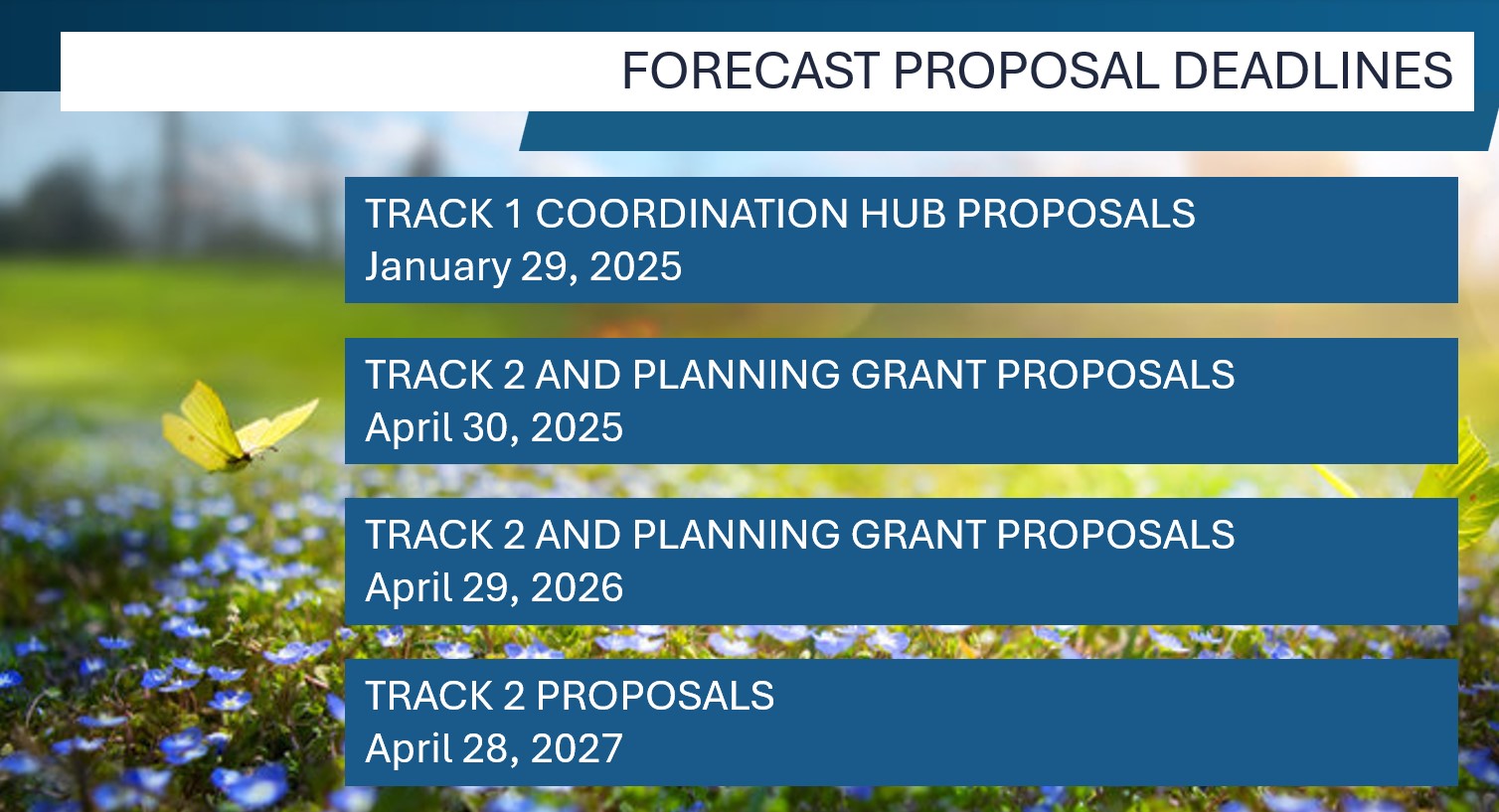New program prepares climate change researchers for the future

FORECAST develops cohorts of scientists cross-trained in engaged research.
September 13, 2024
The U.S. National Science Foundation aims to improve how students, especially those from underserved groups, engage with science at critical points in their early careers.
A new program from the Geosciences Directorate called FORECAST, or Focus on Recruiting Emerging Climate and Adaptation Scientists and Transformers, will provide stipends based on the U.S. Government Pay Scale to undergraduate and graduate students at Emerging Research Institutions (ERIs) to foster community resilience and translate research outcomes for societal benefits.
FORECAST provides institutions with an opportunity to transition from typical graduate-career models of preparation, which tend to focus on building careers in academia, to a model that builds entrepreneurial and innovation capacity. This program aligns with the agency’s priorities to “Build a Resilient Planet” and to facilitate science for everyone, anywhere.
“FORECAST will support intentional professional development for rising undergraduate seniors and graduate students as well as capacity building at ERIs,” Aisha Morris, an NSF program director, said. “The program is unique in that it supports students with livable stipends based on the U.S. Government Pay Scale to help transfer research results to the benefit of local communities."
FORECAST award categories
FORECAST proposals fall into three categories: Track 1, Track 2 and Planning Grants.
· The Track 1 award will support a hub to coordinate support for rising seniors from ERIs or historically excluded and underserved groups as part of a national cohort to participate in structured professional development opportunities.
· Track 2 awards will support Master’s-degree-student cohorts at ERIs.
· Planning Grant awards will build capacity at ERIs and with appropriate partners to undertake the activities necessary to establish a future FORECAST Track 2 cohort.
Student and institutional enrichment
The FORECAST program aims to support student and institutional enrichment activities. The Coordination Hub, under Track 1, will help undergraduates who are interested in geoscience graduate programs or those who want professional careers in global change science with a focus on community engagement. Student participants can come from different institutions, including at ERIs across the country. After one year of training, undergraduate students may receive financial and professional development support to attend a graduate degree program at any eligible institution aligning with their interests.
Awards under Track 2 will support cohorts of Master’s degree students and their faculty sponsors or mentors to work with regional partners and collaborators on innovative approaches to community resilience that help advance career opportunities. By supporting global change researchers, this new program will help harness one of the most critical components of the research enterprise-talented, people.
For more information
Detailed information about the FORECAST program and the requirements for submission can be found in the FORECAST solicitation (NSF 24-558).
If you have questions or comments about FORECAST, please reach out to geoforecast@nsf.gov.
The U.S. National Science Foundation propels the nation forward by advancing fundamental research in all fields of science and engineering. NSF supports research and people by providing facilities, instruments and funding to support their ingenuity and sustain the U.S. as a global leader in research and innovation. With a fiscal year 2023 budget of $9.5 billion, NSF funds reach all 50 states through grants to nearly 2,000 colleges, universities and institutions. Each year, NSF receives more than 40,000 competitive proposals and makes about 11,000 new awards. Those awards include support for cooperative research with industry, Arctic and Antarctic research and operations, and U.S. participation in international scientific efforts.
Connect with us online
NSF website: nsf.gov
NSF News: nsf.gov/news
For News Media: nsf.gov/news/newsroom
Statistics: nsf.gov/statistics/
Awards database: nsf.gov/awardsearch/
Follow us on social
Twitter: twitter.com/NSF
Facebook: facebook.com/US.NSF
Instagram: instagram.com/nsfgov
